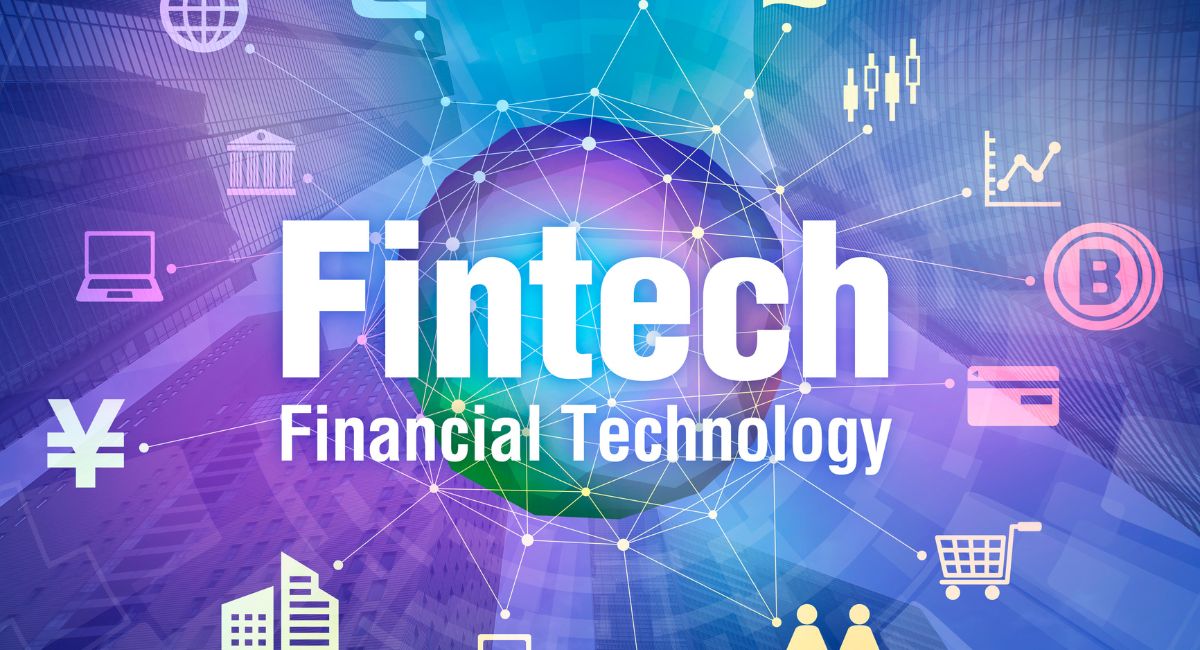Top 10 Intriguing Reasons Future Of Fintech Is Correlated To The Future Of Blockchain

The future of Fintech is poised to be both transformative and disruptive, driven by technological advancements, evolving consumer behaviors, and regulatory changes. Over the past decade, Fintech has revolutionized the financial industry by offering innovative solutions that enhance efficiency, accessibility, and inclusivity. Looking ahead, several key trends are expected to shape the future landscape of Fintech:
- AI and Machine Learning: Artificial intelligence (AI) and machine learning will continue to play a pivotal role in Fintech innovation. These technologies enable personalized financial services, predictive analytics for risk management, fraud detection, and automated decision-making processes, ultimately improving customer experiences and operational efficiency.
- Blockchain and Cryptocurrencies: Blockchain technology, with its decentralized and immutable ledger system, has disrupted traditional financial systems. In the future, we anticipate further integration of blockchain in areas such as cross-border payments, smart contracts, and digital identity verification. Moreover, cryptocurrencies are likely to become more mainstream, with increased adoption by businesses and individuals as a means of payment and investment.
- Open Banking: Open banking initiatives facilitate the sharing of financial data between banks and third-party providers securely. This fosters competition and innovation by allowing Fintech companies to develop new products and services tailored to individual financial needs. As open banking regulations expand globally, we can expect a proliferation of innovative solutions and increased collaboration between traditional banks and Fintech startups.
- Digital Payments and Wallets: The shift towards digital payments and mobile wallets will continue to accelerate, driven by factors such as convenience, security, and the rise of e-commerce. Fintech companies are developing advanced payment solutions, including contactless payments, peer-to-peer transfers, and digital wallets integrated with loyalty programs, further reducing reliance on cash and traditional banking services.
- Financial Inclusion: Fintech has the potential to address the needs of unbanked and underbanked populations by offering affordable and accessible financial services through mobile technology. By leveraging alternative data sources and innovative distribution channels, Fintech startups can reach previously underserved communities, fostering greater financial inclusion and socioeconomic empowerment.
- Regulatory Evolution: Regulatory frameworks will continue to evolve to accommodate the rapid pace of Fintech innovation while safeguarding consumer protection and financial stability. Regulators are likely to embrace regulatory sandboxes and agile approaches to ensure a balance between innovation and risk management, fostering a conducive environment for Fintech growth.
The future of Fintech holds immense promise for reshaping the financial landscape, driving greater efficiency, accessibility, and inclusivity. However, challenges such as cybersecurity threats, regulatory compliance, and ethical considerations must be addressed to realize the full potential of Fintech in fostering a more inclusive and sustainable financial ecosystem.
Also, read- Who Are Fintech Experts And The Top 10 Amazing Career Options For Fintech Experts
The future of Fintech in blockchain

The future of Fintech in blockchain is poised to be transformative, ushering in an era of decentralized finance (DeFi), digital asset tokenization, and enhanced financial inclusivity. Blockchain technology, with its immutable ledger and decentralized architecture, is revolutionizing various aspects of the financial industry, offering unprecedented opportunities for innovation and disruption.
In the realm of decentralized finance (DeFi), blockchain-based platforms are reimagining traditional financial services without the need for intermediaries. DeFi encompasses a wide range of applications, including lending, borrowing, trading, and asset management, all conducted on decentralized networks. As the infrastructure supporting DeFi matures, the future of Fintech in blockchain will witness the proliferation of innovative DeFi protocols, automated market makers, and decentralized exchanges (DEXs), providing users with greater control over their financial assets and eliminating barriers to access.
Asset tokenization represents another significant trend shaping the future of Fintech in blockchain. By digitizing real-world assets such as stocks, bonds, real estate, and commodities, blockchain technology enables fractional ownership, increased liquidity, and seamless transferability of assets. Fintech startups are leveraging blockchain to tokenize a diverse array of assets, unlocking new investment opportunities for both retail and institutional investors while streamlining the issuance and management of securities.
Interoperability between different blockchain networks is paramount for realizing the full potential of blockchain technology in Fintech. The future of Fintech in blockchain will see the emergence of interoperability solutions that facilitate seamless value transfer and data exchange across disparate blockchains. Interoperability protocols and bridges will enable cross-chain asset transfers, cross-border payments, and interoperability between decentralized applications (dApps), fostering a more interconnected and inclusive financial ecosystem.
Central Bank Digital Currencies (CBDCs) are another area poised to shape the future of Fintech in blockchain. Central banks worldwide are exploring the potential of issuing digital currencies using blockchain technology to modernize payment systems, enhance financial inclusion, and improve the efficiency of monetary policy transmission. CBDCs have the potential to revolutionize the way money is issued, distributed, and transacted, providing a digital alternative to physical cash while maintaining regulatory oversight and stability.
Scalability remains a significant challenge for blockchain networks like Bitcoin and Ethereum, limiting their capacity to support mainstream financial applications. However, the future of Fintech in blockchain will see the emergence of scalable solutions designed to address these limitations. Projects such as Ethereum 2.0, Polkadot, and Layer 2 protocols aim to enhance throughput, reduce transaction costs, and improve the overall scalability of blockchain networks, enabling them to support a broader range of financial applications at scale.
Regulatory considerations will play a crucial role in shaping the future of Fintech in blockchain. Regulators are tasked with balancing the need for innovation with ensuring consumer protection, market integrity, and financial stability. Clear and supportive regulatory frameworks are essential for fostering innovation and investment in blockchain-based Fintech solutions while mitigating risks such as fraud, money laundering, and systemic instability.
The future of Fintech in blockchain holds immense promise for transforming the financial industry by democratizing access to financial services, digitizing assets, and fostering greater financial inclusivity. DeFi, asset tokenization, interoperability, CBDCs, scalability solutions, and regulatory frameworks will be key drivers shaping the evolution of Fintech in blockchain, paving the way for a more efficient, transparent, and accessible financial ecosystem powered by blockchain technology.
@FluxQR innovates with a cardless payment system, offering flexible ‘Buy Now, Pay Later’ options. Simplifying transactions, it’s a game-changer in finance.
— Newzchain, a Blockchain Powered Media Platform (@NewzchainHQ) February 16, 2024
Read the full article here – https://t.co/Fb0wQMVTnL #PaymentInnovation #FluxQR #Fintech #Newzchain pic.twitter.com/ibaAxcictr
Top 10 reasons “future of Fintech” is correlated to the future of Blockchain

- Decentralization: Both Fintech and blockchain aim to decentralize traditional financial systems, enabling peer-to-peer transactions without the need for intermediaries. As Fintech evolves, blockchain technology provides the underlying infrastructure for decentralized finance (DeFi) applications, enhancing transparency, security, and efficiency.
- Security and Trust: Blockchain’s immutable ledger ensures secure and transparent transactions, mitigating fraud and enhancing trust in financial transactions. Fintech applications leveraging blockchain technology can offer enhanced security measures, reducing the risk of data breaches and unauthorized access to sensitive financial information.
- Smart Contracts: Smart contracts, programmable self-executing contracts stored on blockchain networks, automate and enforce the terms of agreements without intermediaries. Fintech startups can leverage smart contracts to streamline processes such as loan origination, insurance claims processing, and trade settlements, reducing costs and improving efficiency.
- Tokenization of Assets: Blockchain enables the tokenization of real-world assets, allowing fractional ownership and increased liquidity. Fintech platforms can tokenize assets such as stocks, real estate, and commodities, providing investors with access to previously illiquid markets and enabling seamless transferability of assets.
- Interoperability: Interoperability between different blockchain networks facilitates seamless value transfer and data exchange. Fintech applications leveraging blockchain can benefit from interoperability protocols and bridges, enabling cross-chain transactions, cross-border payments, and interoperability between decentralized applications.
- Financial Inclusion: Blockchain technology has the potential to foster greater financial inclusion by providing access to financial services for underserved populations. Fintech startups leveraging blockchain can offer affordable and accessible financial solutions, such as microloans, remittances, and digital identities, to unbanked and underbanked individuals.
- Efficiency and Cost Savings: Blockchain technology enables faster, more efficient, and cost-effective financial transactions compared to traditional systems. Fintech applications leveraging blockchain can reduce transaction costs, eliminate intermediaries, and automate processes, resulting in significant cost savings for businesses and consumers.
- Regulatory Compliance: Blockchain’s transparent and immutable nature facilitates regulatory compliance by providing a tamper-proof record of financial transactions. Fintech startups can leverage blockchain to ensure compliance with regulations such as Know Your Customer (KYC), Anti-Money Laundering (AML), and data privacy laws, reducing regulatory risks and compliance costs.
- Innovation and Collaboration: The intersection of Fintech and blockchain fosters innovation and collaboration within the financial industry. Fintech startups, financial institutions, and blockchain developers collaborate to develop and deploy innovative solutions, such as decentralized finance (DeFi), tokenized assets, and central bank digital currencies (CBDCs), driving the evolution of both industries.
- Global Adoption and Standardization: As blockchain technology becomes more widely adopted globally, the future of Fintech becomes increasingly intertwined with blockchain. Standardization efforts, industry consortia, and regulatory initiatives promote the adoption of blockchain-based Fintech solutions, paving the way for a more efficient, transparent, and inclusive financial ecosystem powered by blockchain technology.
Conclusion
In conclusion, the future of Fintech is intricately correlated with the future of blockchain technology due to a multitude of reasons. The synergy between Fintech and blockchain offers unprecedented opportunities for transforming the financial industry, driving innovation, and fostering greater inclusivity and efficiency. From decentralization and security to smart contracts and tokenization of assets, blockchain provides the foundational infrastructure for Fintech startups to revolutionize traditional financial services.
Moreover, the intersection of Fintech and blockchain enables cost savings, regulatory compliance, and collaboration across industry stakeholders. As blockchain technology continues to mature and gain widespread adoption, Fintech startups are leveraging its capabilities to develop innovative solutions such as decentralized finance (DeFi), asset tokenization, and central bank digital currencies (CBDCs), shaping the future of finance.
Ultimately, the correlation between the future of Fintech and blockchain underscores the transformative potential of technology in redefining financial systems, enhancing accessibility, and driving economic empowerment on a global scale. As both industries continue to evolve and innovate, their symbiotic relationship will undoubtedly play a pivotal role in shaping the future of finance for years to come.


























































